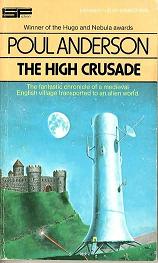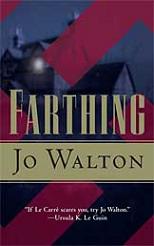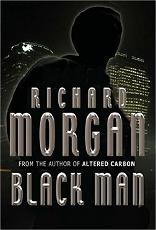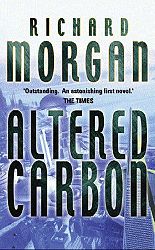
The High Crusade
Poul Anderson
167 pages
published in 1960
Poul Anderson has a not undeserved reputation as a deeply pessimistic, even depressing writer, largely based on his later novels which all seemed to share the assumption that human nature is unchangable, that evil will always be amongst us, progress impossible and the future will always end badly. It must have been something to do with his gloomy Danish genes. The High Crusade shows it was not always this way. Once upon a time even Poul Anderson could write a lighthearted science fantasy romp without some great clonking moral to mess it up.
Great fun it is too. It’s the year 1345 and a small town in Lincolnshire is visited by a spaceship belonging to the Wersgorix Empire, while the local baron Sir Roger de Tourneville was busy gathering men to join king Edward III in France. Thinking the landing a French trick, he and his men storm the space ship and overwhelm and kill almost all of the aliens, who have long since grown unused to hand to hand combat. Ordering the remaining alien to take them to France, Sir Roger loads the entire town into the ship, but the alien tricks them and sets course back to the planet it came from. Lots of adventures and misunderstandings follow and it ends with Sir Roger conquering the entire Wersgorix Empire…
Read more and see also the celebrations over at Tor.


